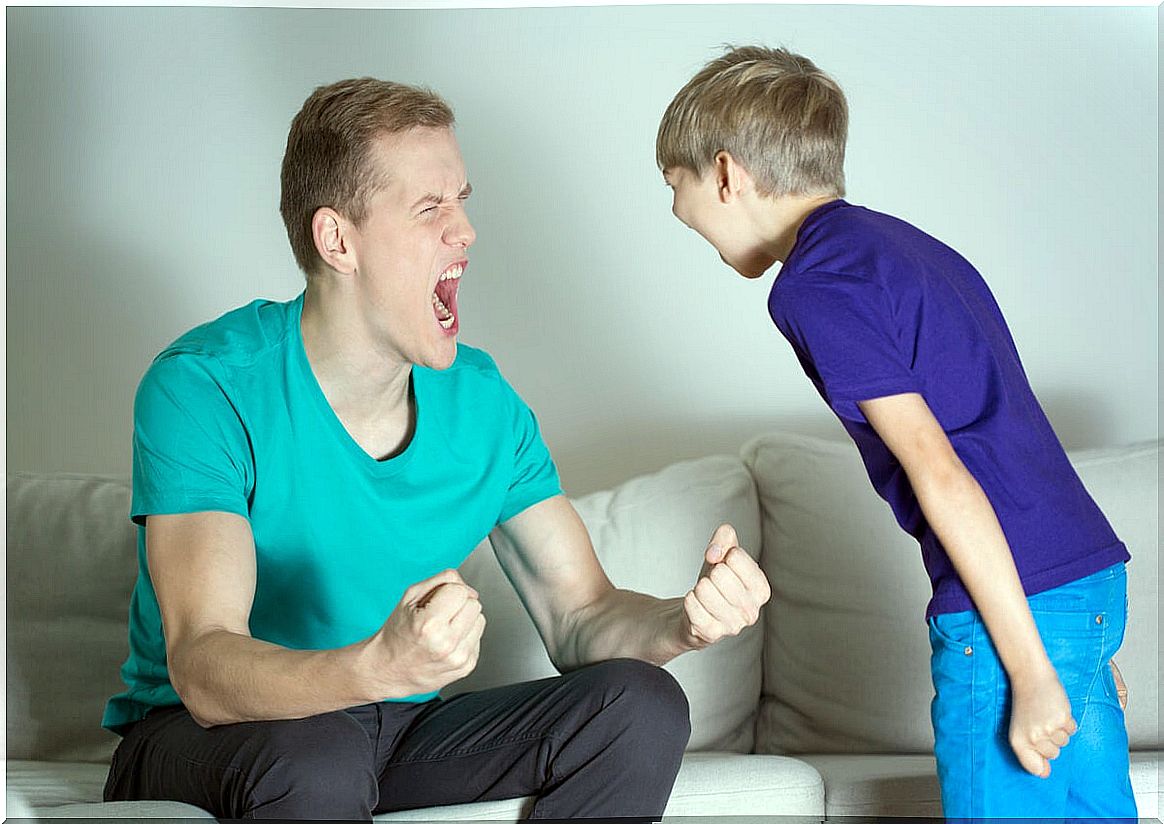Lack Of Patience With Children, Why?

Lack of patience with children is an evil that afflicts many parents. There are also many who do not know why this happens to them, if they adore their children and only want the best for them. The truth is that one does not exclude the other, when you are a parent without having resolved some internal knots or inappropriate strategies are not used to avoid parenting.
It is very common for a lack of patience with children to lead to unfair behaviors that later lead to self-reproach. This also creates confusion in children and sometimes, oddly enough, encourages behaviors that are most intolerable to their parents.
All this happens especially with younger children, although it is also often present with adolescent children. Why is this lack of patience with children installed? How can this be solved? It is what we will see next.

Lack of patience with children: the causes
In short, the lack of patience with the children is speaking of a latent anger in front of them or what they represent. In other words, impatience is a manifestation of something deeper and that generates a state of dissatisfaction, frustration or discomfort.
The reasons that may motivate poor patience with children are the following:
- Lack of clarity in the distribution of roles to fulfill. It occurs when the role of father is assumed without being aware of what this means. It is thought to be something natural, about which there is nothing to learn, when it is not.
- The breeding becomes an obstacle to the realization of individual desires . The mother, father or both want to start projects that take time and parenting is seen as a drag in this regard.
- The relationship is not good. Children are sometimes perceived as a source of conflict in the couple. To that extent, they end up seeing themselves as an obstacle to enjoying coexistence.
- Patterns are repeated. Those who have been raised with abuse or neglect tend to repeat those patterns, if they have not done elaboration work on it.
- There are problems with impulse control. Sometimes the problem is that there is no understanding and control over one’s own emotions, not only with children, but in life in general.
- The son is rejected. The usual thing is that this occurs unconsciously and does not mean that the parents are monsters. What happens is that they have not accepted their motherhood or fatherhood, for some reason, even though they love their little ones.
Decode anger
Lack of patience with children is a symptom and should be seen as such. This means that the issue to be resolved is not this, but what is behind it. This implies a work of reflection and honesty with oneself, to identify the cause or causes for this to occur.
A good starting point is to start by thinking about the reasons that motivated parents to be parents. It is not always the result of a plan and it does not always happen at the most appropriate time. This may be the origin of the intolerance of that person who exists and demands a place in the life of their parents.
It is also convenient to reflect on the state of the couple’s relationship and on the upbringing guidelines that are being carried out. Where do these guidelines come from? What is its base? Do they really work?

Emergency keys
Reflections can take time, but it is very important to do them because only in this way will you get to the bottom of the matter. In the meantime, there are some measures that are well worth taking into account to moderate the lack of patience with children.
The following can be tried:
- Do not speak or act in moments of great anger. Anger breaks through on its own and only causes us to make mistakes. Better to wait a moment before doing or saying something.
- Less control. It is important to accept that during parenting there will hardly be times when we have total control of the situation. There are realities that will not meet expectations, so it is best to reduce the drama of the subject.
- Ask for help. If parenting is perceived as a burden that exceeds the energy available, it is best to seek help from your partner, friends or an external agent.
- Observe. It is good to take note of the moments and the reasons that trigger anger, as well as the behavior of children in this regard.
To the above, it should be added that it is convenient to talk with the couple and agree on the parenting guidelines and the distribution of tasks. It is also appropriate to learn about the best strategies for educating children.









